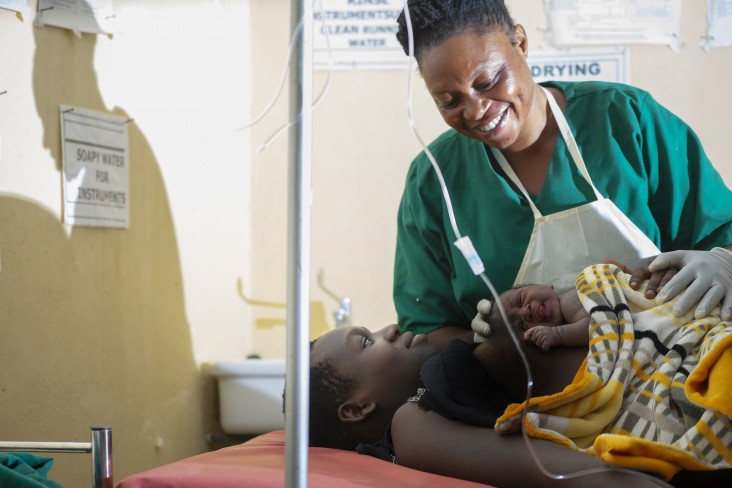Speeches Shim

She was minutes old when we met her cuddled on her mother. Linda Chepkemboi rested her hand protectively over her baby. This 19-year-old mother was tired but happy, and her child, yet to be named, was her first. Linda was forced to drop out of school and leave her parents’ home, when she discovered she was pregnant.
She was able to move in with her sister who helped her purchase a special voucher. The voucher package, highly subsidized by the private health facility, offers four antenatal care visits to low income expecting women, including HIV services helping to eliminate mother-to-child transmission of HIV, delivery with a skilled attendant, postnatal care, and postpartum family planning services.
Minutes into our interaction, Ann Mary, a midwife at Masha clinic came to check on how the mother and baby were doing. She ensured the mother was not experiencing abnormal bleeding and helped the baby latch on the breast. “I would not be here if it was not for this voucher. I was a student with no money to do anything,” Chepkemboi revealed.
Chepkemboi’s situation was not new to Ann Mary. “This project is saving these young mothers,” she said. “The general situation in the past was not very good and many mothers were delivering without assistance. This is a very good program, as it supports our health systems here,” Ann Mary said. The program is supported by the USAID Voucher Plus Activity which partners with Masha Clinic to step up efforts to improve maternal health in Kapchorwa district. The number of women accessing antenatal and postnatal care at Masha Clinic has more than doubled since the Voucher Plus started offering maternal services.
“We are happy that the number of women accessing maternal and child health services has greatly increased, although we had patients on insurance schemes. We used to get about two mothers a week, these days we receive 35 to 40 mothers a month,” Ann Mary said.
Through the support of the USAID Voucher Plus activity, Masha Clinic is improving the facility to better serve the mothers. “The project has helped us improve our services greatly. We had one room for almost every procedure, but we were advised by the Voucher Plus team to demarcate it and have more organized space. We were not offering family planning services but now we are. Through this program, my knowledge in comprehensive family planning has greatly improved,” Ann Mary said.
With each voucher, Masha Clinic is making small but sure strides towards reducing maternal mortality in Kapchorwa district.
In partnership with Uganda’s Ministry of Health, USAID recognizes the increasing role that the private sector plays in ending preventable maternal and child death through expansion of quality services for mothers and babies.

Comment
Make a general inquiry or suggest an improvement.